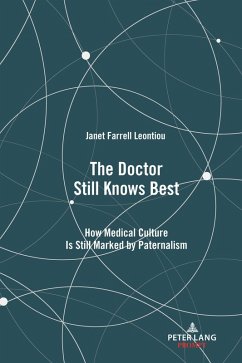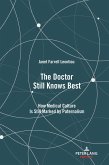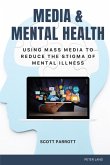The Doctor Still Knows Best explores an answer to the question: how can medical culture still be marked by paternalism despite the focused attempts by the medical community to put doctor and patient on more equal footing? The recent push within medicine has been on shared decision-making, truth-telling by the doctor, and creating a medical culture that is patient-centered. The author has discovered that, in practice, medicine tells a very different story.
Since entering the medical world twenty years ago seeking treatment for infertility through IVF, subsequently seeking treatments for her disabled son through the present day, Janet Farrell Leontiou has continually encountered a medical culture where she is not treated as an equal. As a professor of communication, the author has developed an ear for language and is able to deconstruct the ways in which communication choices create a patriarchal medical culture. Dr. Farrell Leontiou also understands how no communication can create a culture without her participation. She, therefore, invites the reader to recognize how we can endorse and recreate a culture that does not serve our interests. Through an examination of her own experience, the book offers insight on how medical paternalism has survived for as long as it has and argues that it never serves the best interest of the patient.
The book provides the reader, medical student and/or health communication student with a fresh way of thinking about how communicative choices create culture.
Hinweis: Dieser Artikel kann nur an eine deutsche Lieferadresse ausgeliefert werden.
Since entering the medical world twenty years ago seeking treatment for infertility through IVF, subsequently seeking treatments for her disabled son through the present day, Janet Farrell Leontiou has continually encountered a medical culture where she is not treated as an equal. As a professor of communication, the author has developed an ear for language and is able to deconstruct the ways in which communication choices create a patriarchal medical culture. Dr. Farrell Leontiou also understands how no communication can create a culture without her participation. She, therefore, invites the reader to recognize how we can endorse and recreate a culture that does not serve our interests. Through an examination of her own experience, the book offers insight on how medical paternalism has survived for as long as it has and argues that it never serves the best interest of the patient.
The book provides the reader, medical student and/or health communication student with a fresh way of thinking about how communicative choices create culture.
Dieser Download kann aus rechtlichen Gründen nur mit Rechnungsadresse in A, D ausgeliefert werden.
Hinweis: Dieser Artikel kann nur an eine deutsche Lieferadresse ausgeliefert werden.









